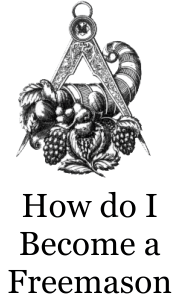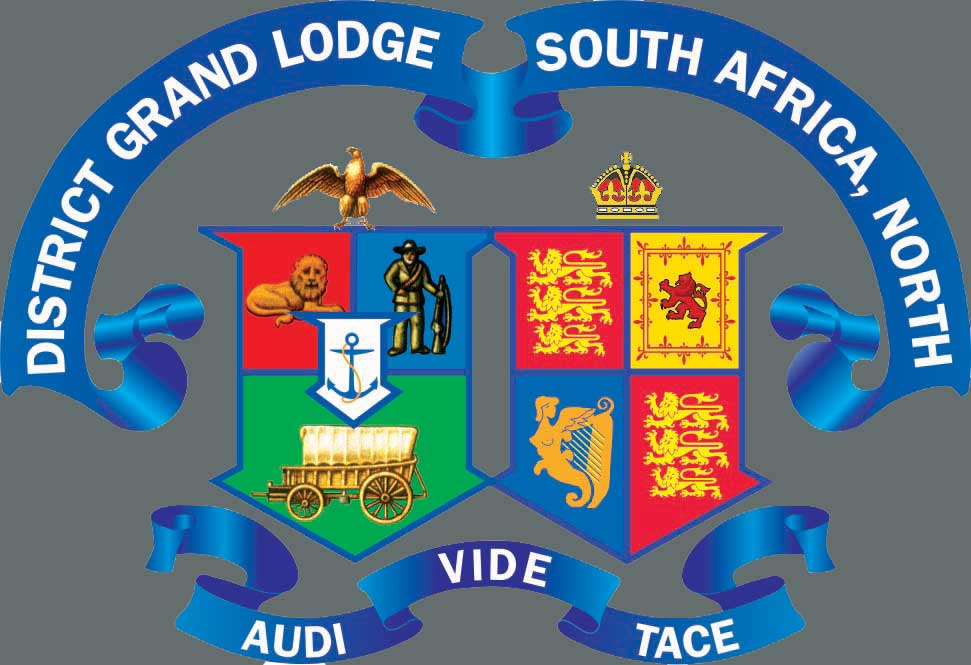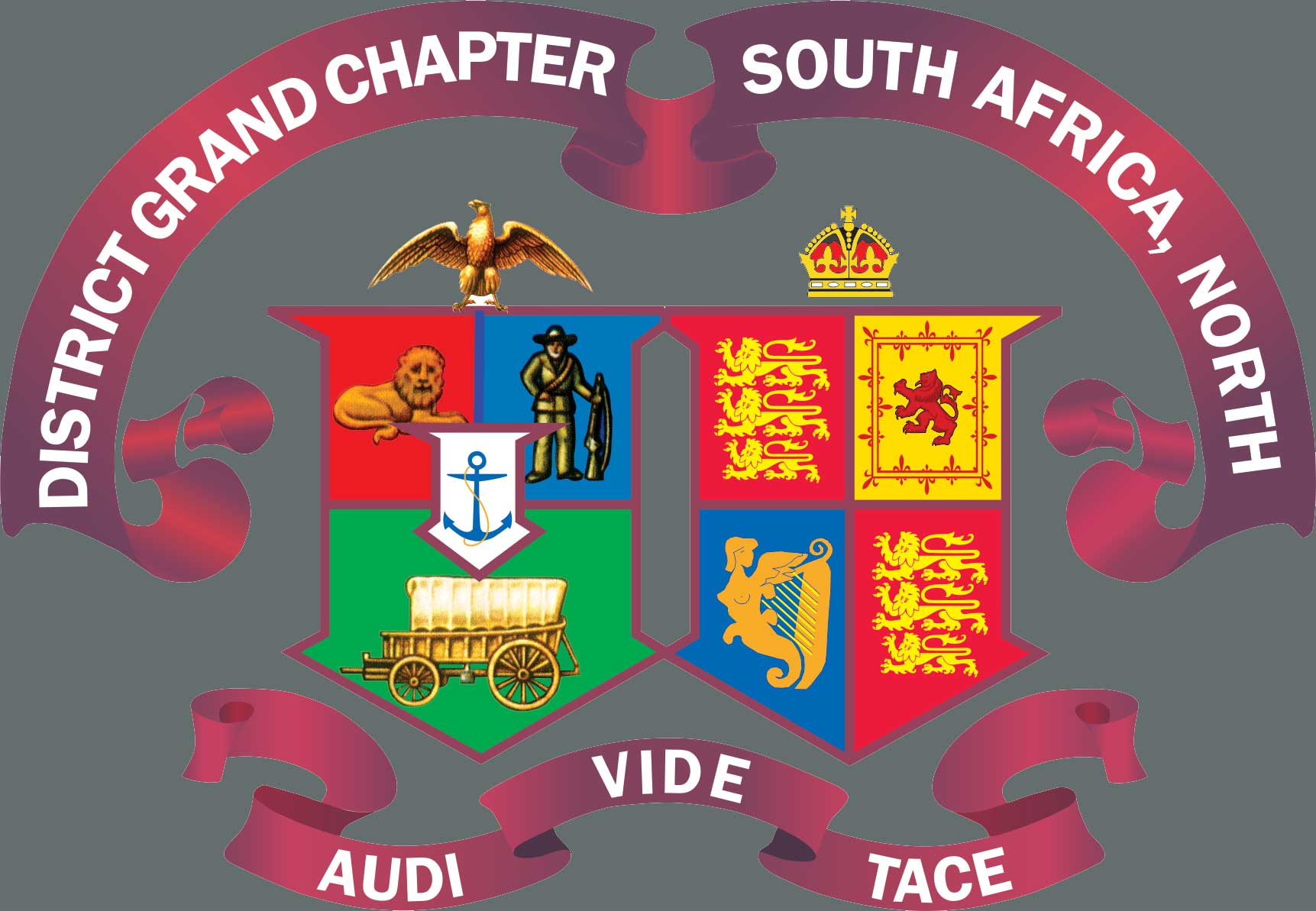
What do I need to do to become a Mason?
Having decided to seriously persue the question of becoming a Mason, your first step will be to contact someone you know to be a Mason and express an interest in joining the fraternity. There is still a misconception in some people's minds that you have to be invited to join - this is no longer true.
If you do not know anyone who is a Mason then your first step will be to get in contact with the District Secretary (on 011 643 3311) during normal working hours, Monday to Friday. He will then be able to put you in contact with someone who can take the matter further. In either case, there will naturally be a process undertaken to ensure that you understand the commitment you are making and that your family support your application. The article below explains in detail what the process will be. It was written some thirty plus years ago, but is still as relevant now as it was then.
We look forward to your joining the fraternity
"So, you would like to become a Freemason?"
As you have expressed a desire to become a Freemason, we assume that you are of mature age - that is to say at least twenty-one years old - and that you have thoroughly considered the step you propose to take. The exact nature of our Order being unknown to you, we consider it advisable to explain certain points which may or may not affect your decision to apply for membership.
Let us commence by saying that any attempt to define Freemasonry adequately or completely is futile, because Freemasonry comprehends such a vast field of speculation that the best, any of us can hope for, is a continually improving conception of its many phases. But we can enlighten you to some extent by revealing that:
Freemasonry is not in itself a religious Order, but is a Fraternity of men banded together by ties of mutual interest and the general good of humanity. We are philosophical people. We believe that Freemasonry may have an acceptable answer to every problem which confronts human conduct and thought.
Freemasonry has in all ages insisted that men shall come to its door entirely of their own free will; not as the result of improper solicitations - certainly not from a feeling of curiosity - but from a favourable opinion they have gleaned about our Order and a genuine desire to be numbered among its thousands of members.
Freemasonry has for its foundation the great basic principles of the Fatherhood of God and the Brotherhood of Man; therefore no man should attempt to enter who cannot conscientiously affirm his belief in God as Supreme Being and Creator and Preserver of the Universe, or who is not prepared to take solemn vows of obligation and secrecy in purely Masonic matters. Freemasonry strives to teach a man the duty he owes to God, to his neighbour, and to himself and to stimulate the moral and spiritual improvement of its members. It inculcates the practice of every virtue, and makes an extensive use of symbolism in its teachings. It interferes neither with religion nor politics.
It cannot be too strongly emphasised that Freemasonry is not to be entered into in the hope of personal gain or advancement. Admission must not be sought from mercenary or other unworthy motives. Anyone so actuated will be bitterly disappointed should he be admitted. The aim of a true Freemason is to cultivate a Brotherly Feeling among men and to Help where he can.
Freemasonry is not a Benefit Society and this fact cannot be too strongly emphasised. Our annual subscriptions do not provide for sickness benefits or make provision for those we leave behind. There are other excellent organisations founded for this purpose. No man should consider himself for Freemasonry unless he feels reasonably hopeful that he will never require help from its funds. Our funds are given exclusively for charitable purposes in many forms, i.e. the aged who are unable adequately to provide for themselves; Masonic Havens for husbands and wives to be together in the twilight years of their lives; hostels, schooling, educational grants and bursaries for the young; relief for suffering humanity caused by tempest, flood, fire, epidemic, etc.
Loyalty to the country in which one resides is an essential qualification in Freemasonry, and only those are acceptable who cheerfully conform to every lawful authority. Disloyalty in any form is abhorrent to a Freemason, and is regarded as a serious masonic offence.
We think it advisable to inform you that your admission to our ranks will entail certain financial obligations which you should be able to afford (as they are not in any way excessive) without being detrimental to yourself, your family or others dependent upon you. In addition to the fee payable on your entrance, there will be an annual subscription for the support of your lodge, expenses and ad hoc contributions from time to time for Masonic charities or other worthy projects.
Before we leave this aspect of Freemasonry you should, if married, now ask yourself these pertinent questions:
How will Freemasonry affect my wife and/or family, financially and otherwise?
Will Freemasonry interfere with my daily occupation?
Will I be able to attend meetings regularly? Lodges in this District generally meet twelve times a year (though some meet only 6 times per annum) interspersed with rehearsals and lodges of instruction. Freemasons are invited to visit other lodges from time to time, but always within their means and time available without detriment to their private and public avocations.
With these questions in mind we recommend that your wife/family be made fully aware of your Masonic commitments. Their wholehearted support is most important. Therefore we believe it preferable that a member of the lodge committee should interview you at home with your wife present, thus allowing her the opportunity of enquiring to what extent her family life may be affected. Should you have, or have had a relative with a Masonic background, this would be the appropriate time to bring it to the notice of the interviewing committee.
In earlier paragraphs we explained what Freemasonry was NOT and what NOT to expect from it; therefore it would now be prudent for you to enquire: "How did Freemasonry come into being; how does it operate and, what is expected of me, once admitted?"
Freemasonry is a natural progression from an operative "brotherhood" of architects, builders and workmen (more than 180,000, consisting of Prefects, Improvers and Learners) employed at the building of King Solomon's Temple at Jerusalem in the year 480 B C (the building of the Temple is fully described in the First Book of Kings, in the Old Testament of the Holy Bible). In due course the Mediaeval Operative Gilds of Europe were founded and admitted Learners and Apprentices for seven years training. When duly qualified they were made Fellows of Craft and finally Master Masons.
Today, the Brotherhood of English Freemasonry under the aegis of the United Grand Lodge of England, constituted in London in 1717, is a vast organisation of thousands of lodges throughout the world practising Symbolic Masonry for the benefit of mankind. In England, each County has its own Provincial Grand Lodge, whilst overseas Lodges fall under the jurisdiction of District Grand Lodges. Freemasonry came to the Cape in 1772, to Algoa Bay in 1828 and as the Voortrekkers and Settlers moved northwards it came to the Transvaal in 1866.
You asked "what does Freemasonry expect of me, once admitted? "
Simply this :
Love and kindness in the home; honesty and fairness in business or occupation; courtesy in social contacts; help for the weak and less fortunate; forgiveness towards the penitent; love towards one another, and above all, reverence for the Supreme Being. Crystallised, these principles represent TRUTH, HONOUR, VIRTUE and are the basic principles embodied in the ten commandments, forming the very foundation on which we ALL should mould our everyday behaviour through life.
We have imparted sufficient information to enable you to conclude that Freemasonry is not contrary to the principles of a man of upright heart and mind, and has in it nothing inconsistent with his civil, moral, or religious duties.
1st September, 1977
LESLIE G D HINETT
DISTRICT GRAND MASTER


